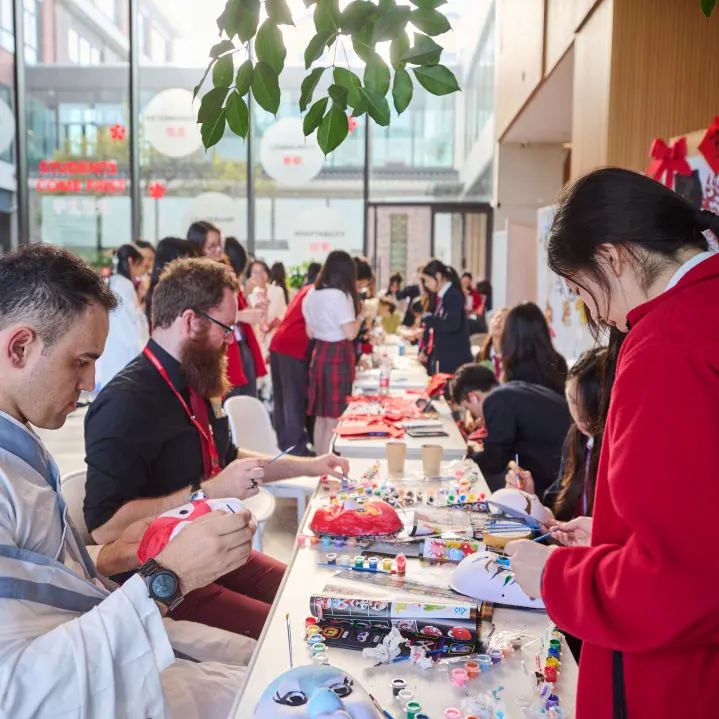Highlights of Chinese Cultural Festival
The annual Chinese Cultural Festival was held at Dulwich Zhuhai on January 18. This year's theme was ‘The Wisdom of Intangible Cultural Heritage’. The atmosphere of Chinese culture was everywhere, from the theatre to the lobby to the dining hall. Many students and teachers dressed in traditional Chinese costumes, adding to the excitement of the festival.
At the opening ceremony, the students performed songs, dances and kuaiban, highlighting the unique features of traditional Chinese culture. The project team also introduced the audience to the intangible cultural heritage of dim sum in Zhuhai, Beishan tea cake. The other two teams also presented two Chinese art treasures, ‘Su Embroidery’ and ‘Guqin’.

The theme, planning and execution of this year's festival were all student-led. In particular, Yuki in Year 10 and Sophie in Year 11 volunteered to take on the overall coordination of the event. As a result of the students' efforts, more than ten workshops were presented throughout the event.
What does intangible cultural heritage mean to our students? I think it is wisdom and craftsmanship. For example, the cocoon, transformed into a silk scarf in the hands of ancient craftsmen, and into a fashionable outfit in the hands of modern technology workers. Traditional skills change from time to time and place to place, but the constant is the wisdom of craftsmanship. In this event, the preparation team composed of student volunteers was brave enough to take responsibility and make collective efforts, which also aptly demonstrated the ‘wisdom and craftsmanship’.
—— Ms Liang, Head of Chinese

I love to experience new things and the design workshop was a great opportunity to me, thanks to Ms Liang for giving me this chance. The hand-painted fan workshop was surprisingly popular. It was a big challenge for me to introduce my workshop to so many people, but the success of this activity also gave me a sense of achievement!’

‘Why is China's intangible heritage worth promoting? I think there are two aspects. First, ICH is an external manifestation of the national spirit and represents a glorious national history. Second, it embodies the wisdom of the ancients, which inspires us today for the development of modern society and helps promote social innovation and progress.’

When the wind blows, the skirts fly and our connection is made by the wind. When the music starts, only the light can illuminate the dance of two people and bring out a passionate mood. When the music stops, it is as if the sound of the strings lingers in the ears and cannot be forgotten for long.’

‘The Chinese Cultural Festival was a celebration I had never experienced before. I saw many students working hard to prepare for the workshops, and many other students and teachers actively experiencing and participating in it. I even got to perform the Kuaiban. I was really nervous about performing on stage because we were not only showing our talents, but also introducing a part of traditional Chinese culture to our teachers and classmates.





